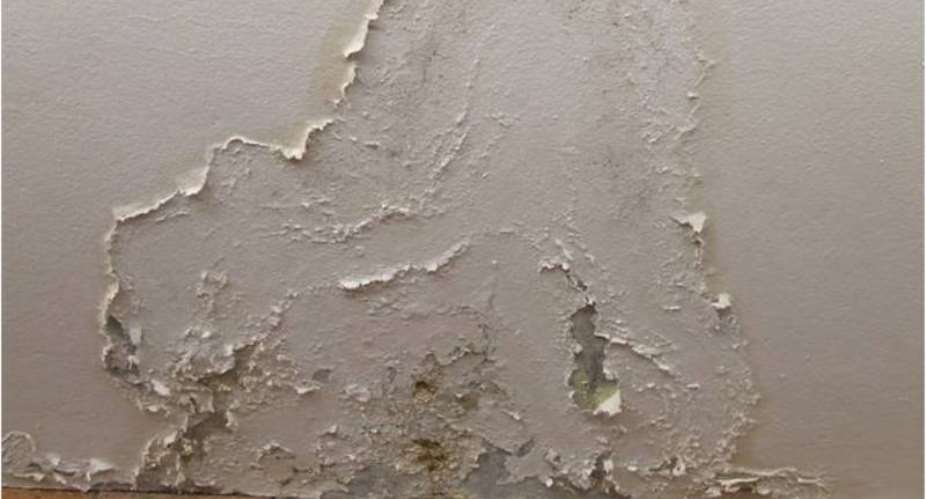People who live in buildings with rising damp could be exposed to asthma, eczema, lung cancer, skin diseases and other health conditions, besides the risk of potential collapse of such structures.
That’s a warning by building experts and construction researchers at a Continuing Professional Development seminar in Kumasi.
“When the building is damp, there are molds which are micro-organisms, which circulates in our rooms when air-conditioners and fans are on; we thereby get infected in the process.”
Rising damp is the presence of unwanted moisture in a structure as result of either intrusion from outside or condensation from within the structure.
It is an age-old menace in the construction industry, accounting for 50 per cent of building failure worldwide.
Ghanaian experts indicate one out of every ten buildings in the country is affected by the problem; a situation they say is worrisome.
Lead researcher of the problem, Kofi Agyekum, at the forum spoke on the topic, ‘Rising Damp in Buildings; an issue worth addressing’.
But the researcher is worried of the, “We are in a society where every little thing we attribute it to demons and evil spirits, but these are things around us that are killing us slowly”.
In Ghana, many people adopt various ways such as tiling to address it with little or no desired results.
A retired researcher with the Building and Road Research Institute, Baiden Amissah, warns of gradual neglect of construction science.
“We are going to an era where we say we have become more scientific but we are losing sight of the very basis of science behind construction.
According to Mr. Amissah, the society is gradually going to have a lot of serious maintenance problems, likely to have collapse, if we don’t see to this thing in time.
National President of the Ghana Institute of Construction, Prof. Joshua Ayarkwa, believes continuous stakeholder engagement is needed to addressing the challenge.
At one of such meetings in Kumasi, experts fault the poor supervision by professionals during the construction stage to ensure the right thing is done.
Growing grasses and gardens close to building also exposes such structures to dampness as water is almost always will be in contact with the foundation of the said structure.
Reports suggests that masons and some professionals are aware of the problem but have no idea of a solution so compromise when building.
As a measure to address the problem, researchers are advising the use of standardized blocks than commercial ones (blocks).
Story by Prince Appiah





 We’ll no longer tolerate your empty, unwarranted attacks – TUC blasts Prof Adei
We’ll no longer tolerate your empty, unwarranted attacks – TUC blasts Prof Adei
 Bawumia donates GHc200,000 to support Madina fire victims
Bawumia donates GHc200,000 to support Madina fire victims
 IMF to disburse US$360million third tranche to Ghana without creditors MoU
IMF to disburse US$360million third tranche to Ghana without creditors MoU
 Truck owner share insights into train collision incident
Truck owner share insights into train collision incident
 Paramount chief of Bassare Traditional Area passes on
Paramount chief of Bassare Traditional Area passes on
 Two teachers in court over alleged illegal possession of BECE papers
Two teachers in court over alleged illegal possession of BECE papers
 Sunyani: Victim allegedly shot by traditional warriors appeals for justice
Sunyani: Victim allegedly shot by traditional warriors appeals for justice
 Mahama vows to scrap teacher licensure exams, review Free SHS policy
Mahama vows to scrap teacher licensure exams, review Free SHS policy
 Government will replace burnt Madina shops with a new three-story, 120-store fac...
Government will replace burnt Madina shops with a new three-story, 120-store fac...
